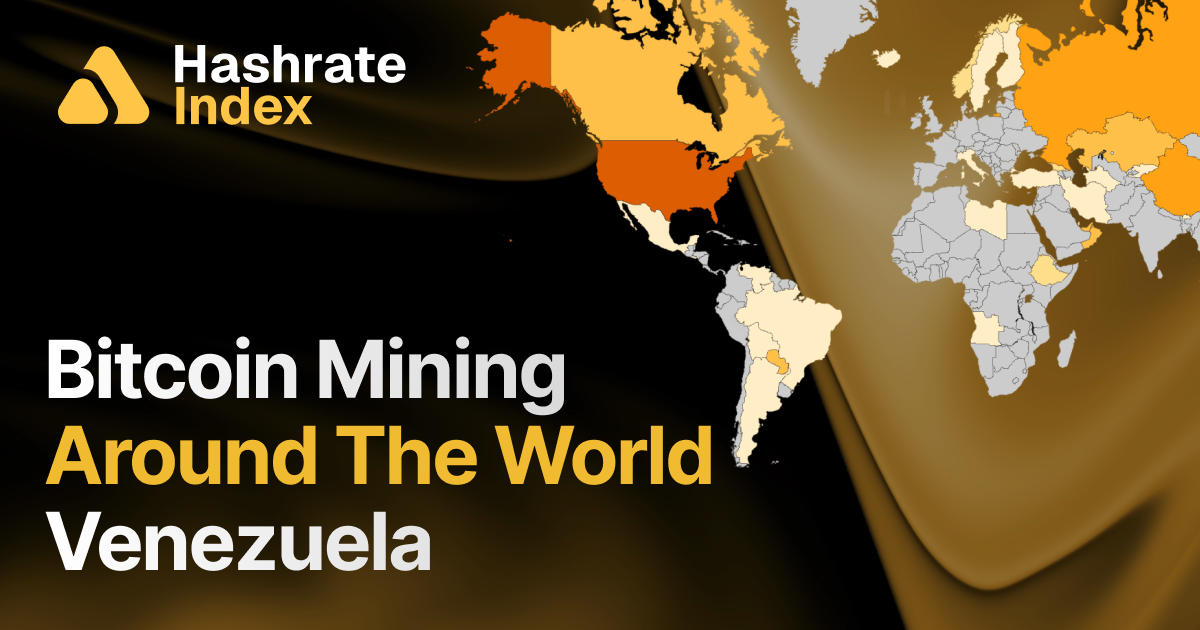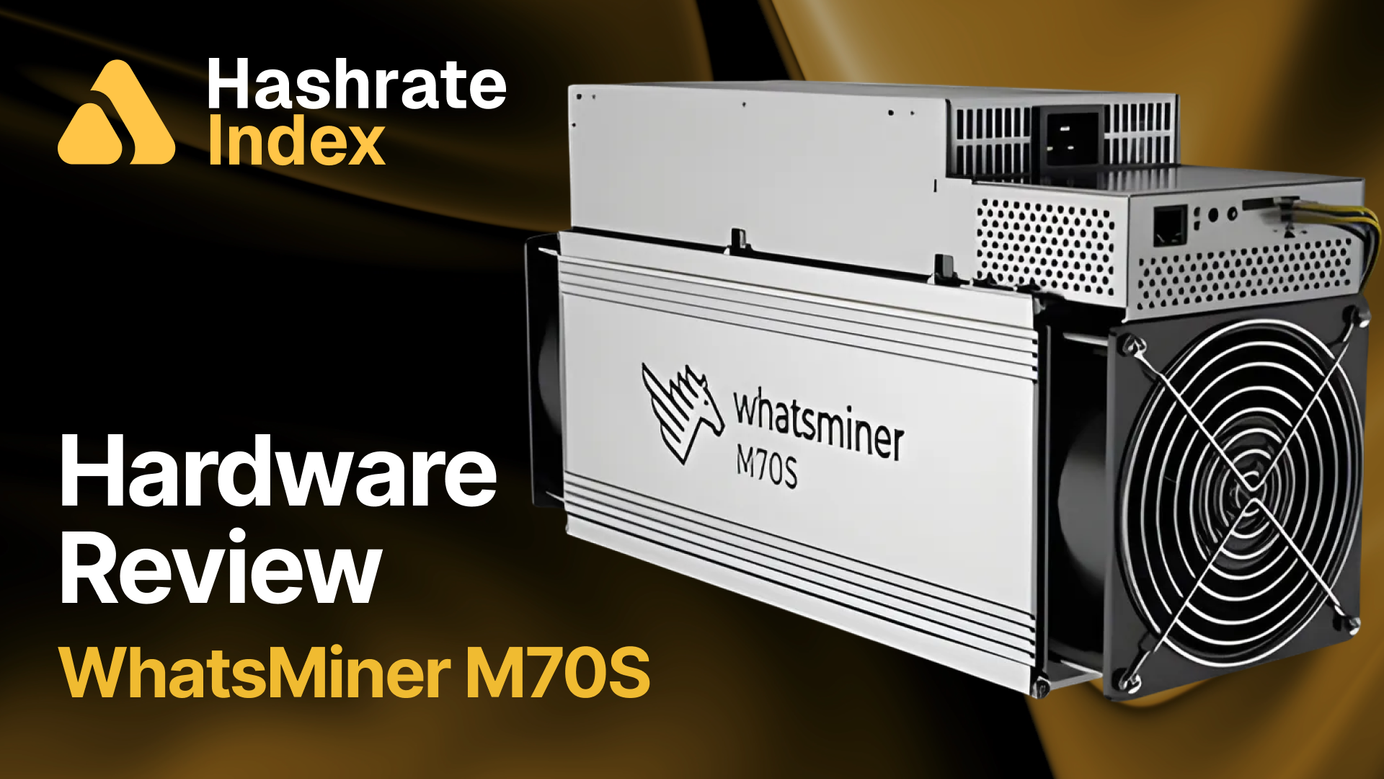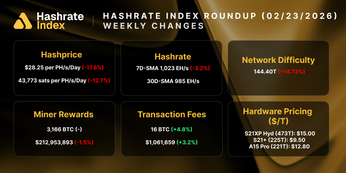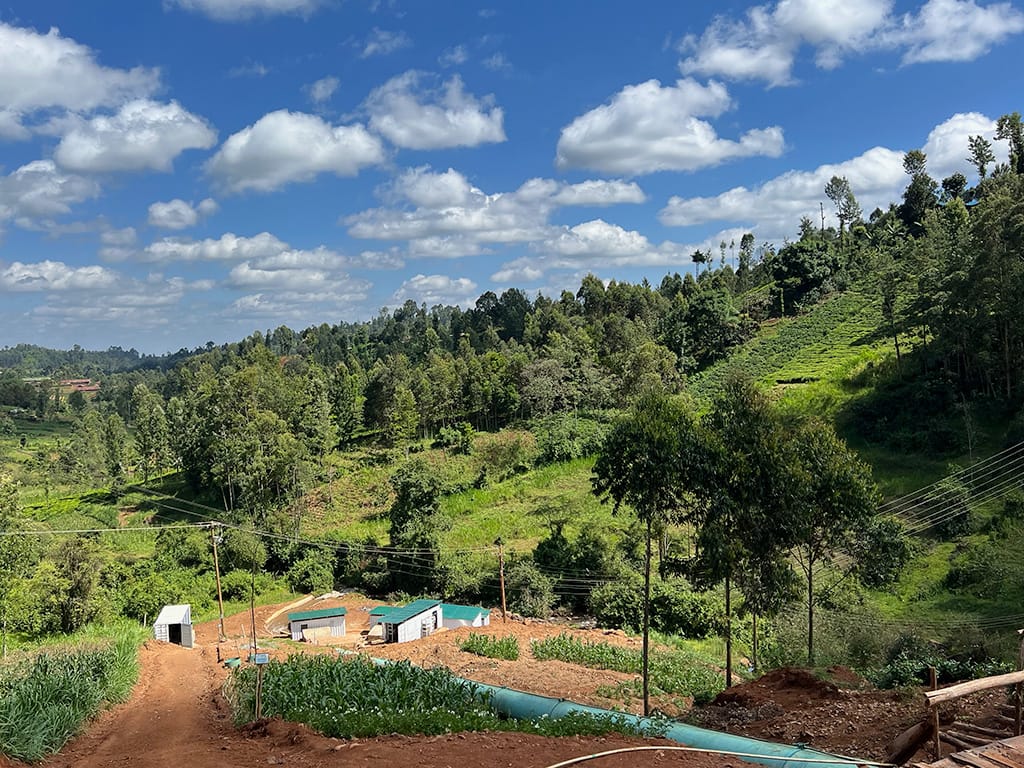
Green Africa Mining Alliance Delivers First ASIC Miners for Seed Program
This July, GAMA delivered the first batch of ASIC miners to Seed Program beneficiaries.
Last December, the Green Africa Mining Alliance (“GAMA”) launched its Seed Program to support potential new bitcoin miners in Africa by kickstarting their access to lower cost ASIC machines. GAMA’s mandate is to help renewable-focused African Bitcoin miners clear operational, financial, and regulatory hurdles, thus fostering hashrate growth in perhaps the most nascent – and most promising – geography for Bitcoin mining.
This July, GAMA delivered the first batch of ASIC miners to Seed Program beneficiaries. These ASICs, which were donated by Luxor Technology Corporation (“Luxor”), just arrived in the hands of miners in Ghana and Nigeria, two countries that show some of the greatest promise for Africa’s burgeoning Bitcoin mining industry.
“I am hoping the outcome for the GAMA Seed Program will be the successful establishment of new African bitcoin miners, providing them with the necessary equipment, support, and resources to become operational. This initiative should empower individuals, stimulate local economies, and foster innovation in the cryptocurrency sector across the continent,” said Ojuola Damilola, a Nigerian Bitcoin miner who received one of the initial ASIC shipments.
These ASIC donations are just the first of many initiatives that GAMA is planning with its Seed Program to uplift African Bitcoin miners by giving them the tools they need to construct robust, renewable-friendly Bitcoin mining operations.
Jesse Pielke from HashrateUp, supporting GAMA, adds, “The GAMA Seed Program is designed to support hashrate growth in Africa and to enable participants to make mistakes and errors much more affordably. Learning by doing is key when it comes to mining. This program plants seeds for future, larger mining operations on the continent.”
How Bitcoin Mining Can Supercharge Renewable Energy and Improve African Communities
Africa might not be the first continent that comes to mind when we think of prime real estate for Bitcoin mining, but it is teeming with promise. The very fact that Bitcoin mining uses a significant amount of energy is why it is helping push electrification further to the edges in Africa, where approximately 600 million people still don’t have access to electricity at all, because it creates an anchor tenant on newly built energy infrastructure as the community and businesses surrounding it slowly ramp up into their full utilization of it over time.
Since the region is so under explored compared to other geographies for Bitcoin mining, there are plenty of opportunities. Many countries in Africa have difficulties transmitting power, and there are many energy generating assets that go underutilized, so miners can make use of power that would otherwise go to waste. The revenue they generate for utilities and governments can then be rolled into projects to build transmission lines and other distribution infrastructure for other consumers. In this way, Bitcoin miners can play a crucial role in electrifying Africa by monetizing otherwise stranded or underutilized energy. This stands opposite to HPC and other data centers which have largely under-invested in Africa due to concerns over power uptime, high capex and other limiting factors.
This is particularly true for areas that operate minigrids. These small-scale power sources, which are usually hydro-electric, provide electricity to underdeveloped, mostly rural areas. Bitcoin mining is a promising method for fully-monetizing the electricity these minigrids produce, and the grid operators can use this income to invest further in electrical infrastructure for these underserved regions.
Looking beyond microgrids, Africa also has an abundance of large-scale hydroelectric power in countries like Angola, Ethiopia, South Africa, and the Democratic Republic of the Congo that provide consistent, inexpensive electricity. These regions are still relatively underdeveloped, so much of the hydropower they produce goes unused. As such, Bitcoin miners are the perfect candidates to tap this unused power and thereby produce revenue that these regions can use to invest in further energy grid development.
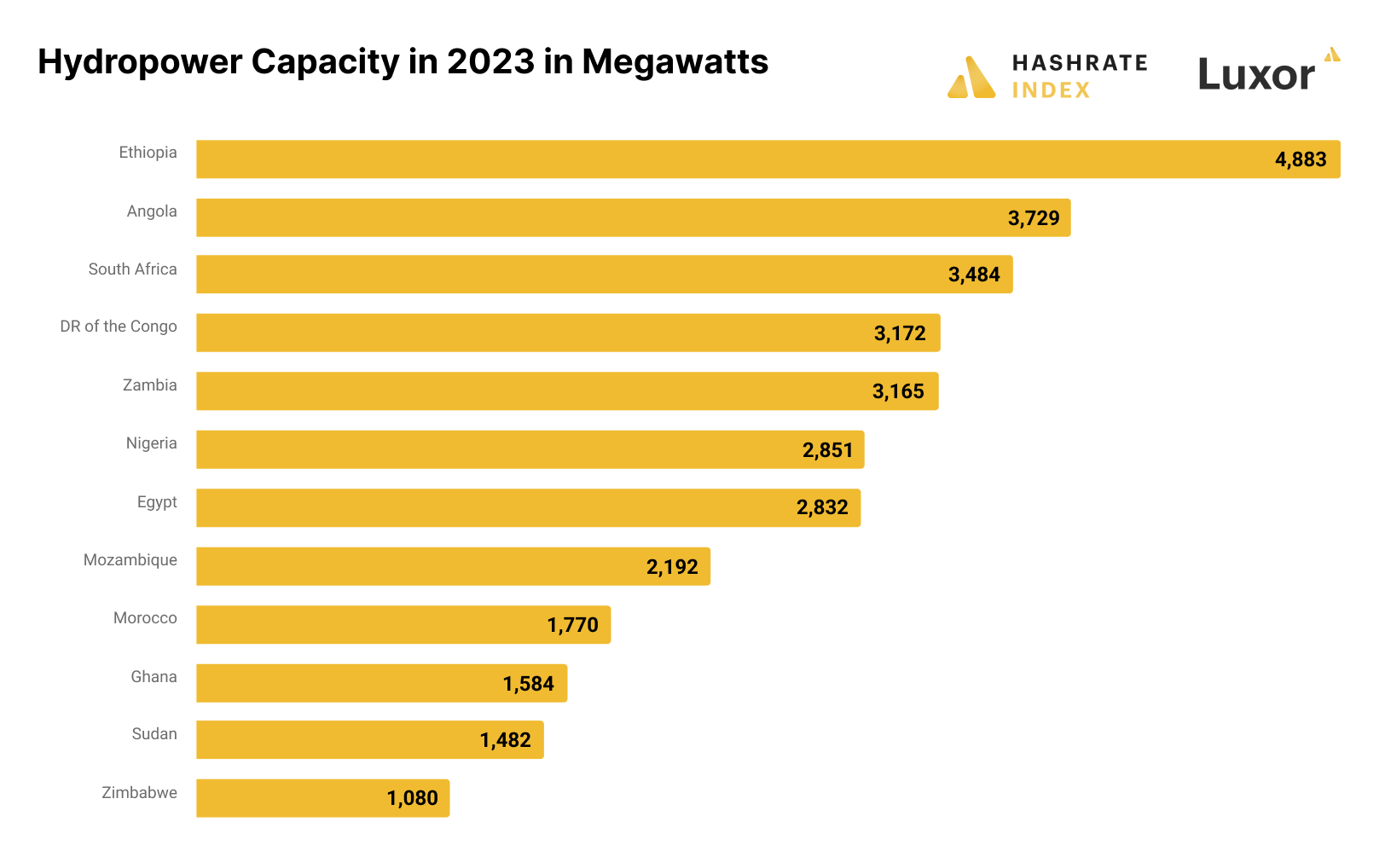
Bitcoin Mining in Nigeria
One of the beneficiaries of the Seed Program, Ojuola, is focusing on expanding his operations in Nigeria, which includes financing a transformer so that he can connect to the grid. Currently, he can only run 30 ASIC machines with the limited power he can draw from a local transform; with his own transformer, we could expand to draw more power directly from the grid.
“Currently, I can only gain access to grid energy if I purchase and install a transformer. This would allow me to connect directly with the Power Holding Company of Nigeria, ensuring a more consistent and adequate power supply,” he said.
The ASICs he’s receiving for the first round of ASIC donations, though, will allow him to “maximize the potential of the available space,” which will significantly contribute to achieving " [the] long-term goal” of setting up his own transformer. Adding revenue into the business will help with financing prospects and begin the scaling process.
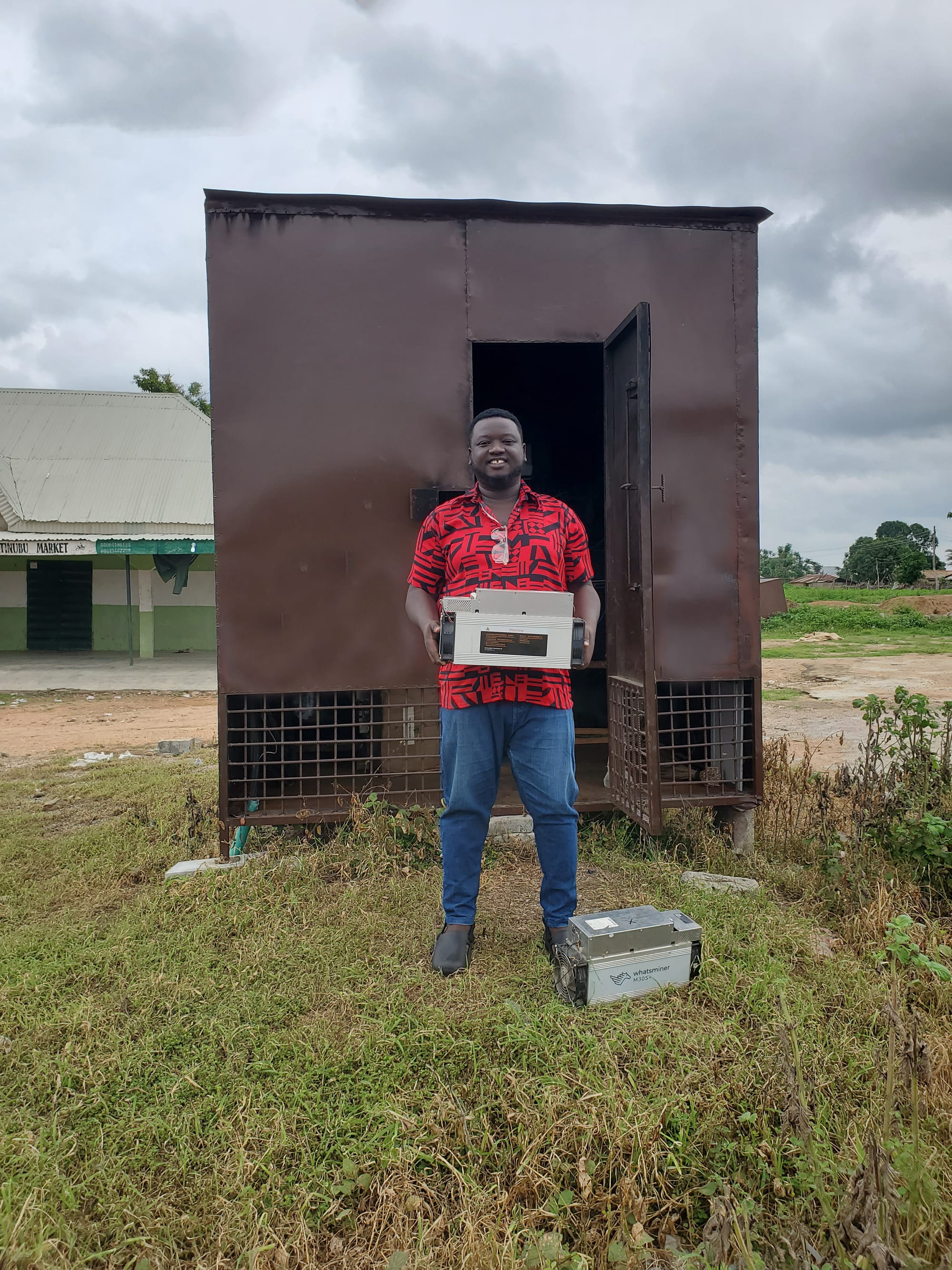
Nigeria has emerged as a promising hub for Bitcoin mining thanks to its underutilized hydro-electric power and its abundance of stranded natural gas on the country’s many oil fields
Nigerian officials have to encouraged Bitcoin miners to come to the country to utlize otherwise flared/vented natural gas (the country produces a little over one million barrels of oil per day and is the ninth biggest natural gas flaring country as of 2022). Further, the government has taken a step to establish formal regulation for Bitcoin businesses via the Nigeria Blockchain Policy Bill. Additionally, Nigeria’s June 2023 Electricity Act allows for state-by-state management and distribution of electricity and energy resources, so state governments can now make decisions for their energy producing assets that are independent of the national grid. This decentralization has been a positive development for Bitcoin miners, as state electricity authorities now have the leeway to sell power at their discretion.
Ultimately, with 11.7 GW of electricity produced in 2021 and over 5,000 bcm of flared gas volume in 2022, Nigeria holds great promise to become one of Africa’s biggest Bitcoin mining hubs, but there are still gray areas to clear up before it achieves its full potential. Regulation and electrical infrastructure remains a constraint.
Bitcoin Mining in Ghana
Rexmond, a Ghanaian miner who is also a recipient of the Seed Program, believes that the program will have a positive impact on his community by providing employment opportunities while also improving the perception of Bitcoin in Ghana and Africa more broadly.
"I envisage the GAMA programme to be a success since it presents enormous opportunities to the people of Africa, particularly Ghanaians,” he said. “The GAMA programme will empower participants by offering them career opportunities as unemployment is a canker on the African continent. Also, the GAMA programme would enhance financial inclusion as participants will have full control of the bitcoin they receive as rewards. Furthermore, the GAMA programme seeks to demystify the negative notion that most Ghanaians have about bitcoin since participants will have a comprehensive understanding of the concepts and technological architecture underlying bitcoin operations.”
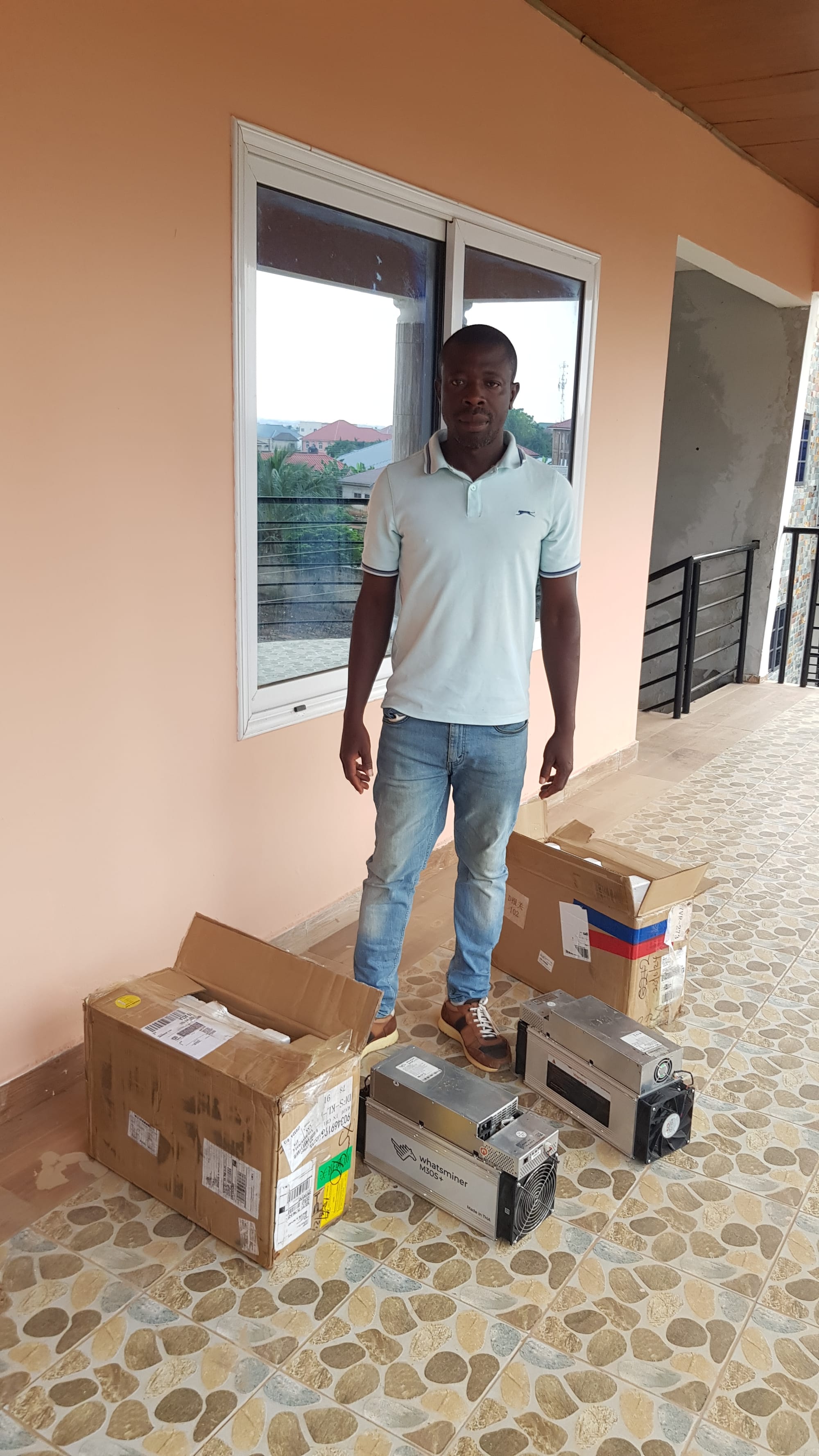
Rexmond will operate his ASICs at his home, and to mitigate the effects of the occasional power outages that Ghanaians face, he plans to install a generator. In the medium term, he hopes to expand his operation to 50 ASICs and acquire a dedicated site for his operations. His long term goals involve building a micro hydro dam to power his operations in a self-sustaining manner.
“This means mining sites will be situated near the rivers where the power will be generated to reduce production costs. Since the project is capital intensive, having a strategic partner will ensure a successful implementation of such a golden idea,” he said.
Increasing power production in Ghana is a major focus in the region, and Bitcoin mining load will likely have a positive impact on providing an initial demand for new generation and help finance large scale projects.
How to Get Involved in GAMA’s Seed Program
Overall, we believe that Africa is the next great frontier for Bitcoin mining, and there are scores of talented entrepreneurs who are seeking to couple Bitcoin mining with energy-producing assets to solve challenges that are impeding the full electrification of the continent.
If you are a miner, philanthropist, or investor who is eager to donate to GAMA’s Seed Program, please reach out to Jesse Pielke via email at [email protected]. We encourage you to donate machines to this great cause.
Additionally, if you are a miner in Africa and you wish to apply for Seed Program aid, please reach out to the GAMA team by filling out this application.
Hashrate Index Newsletter
Join the newsletter to receive the latest updates in your inbox.

